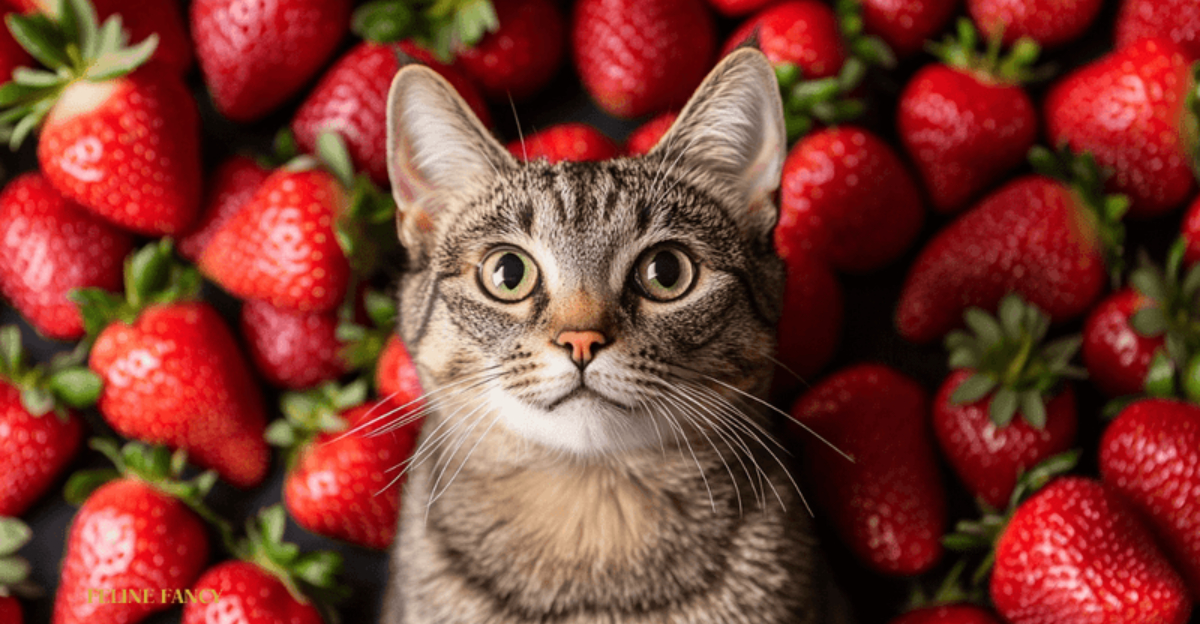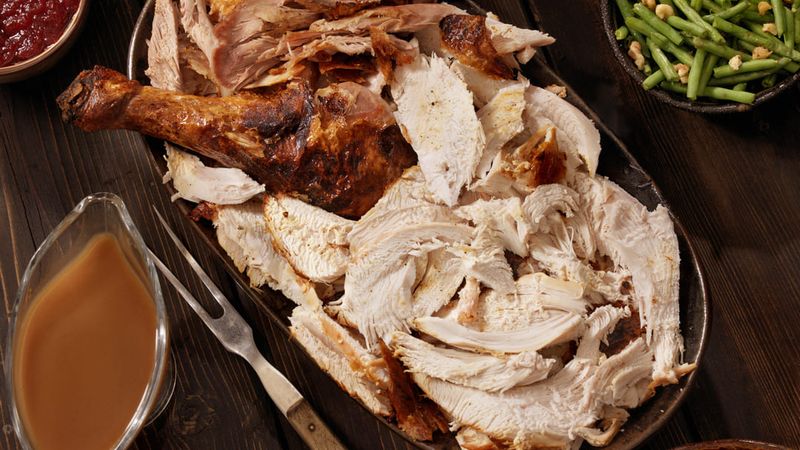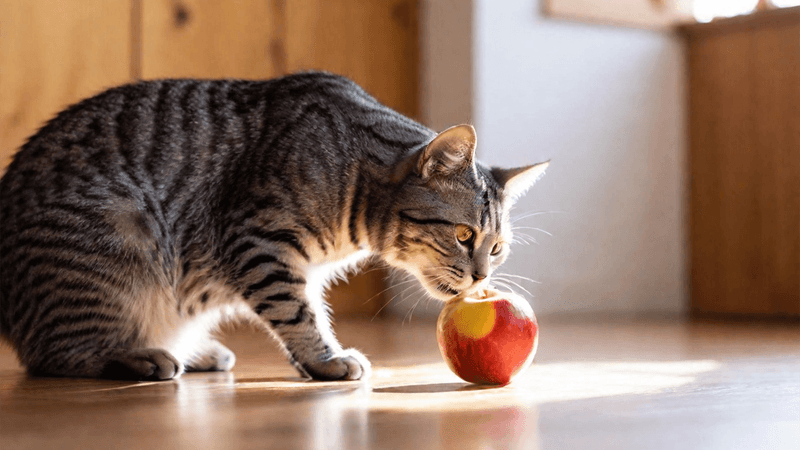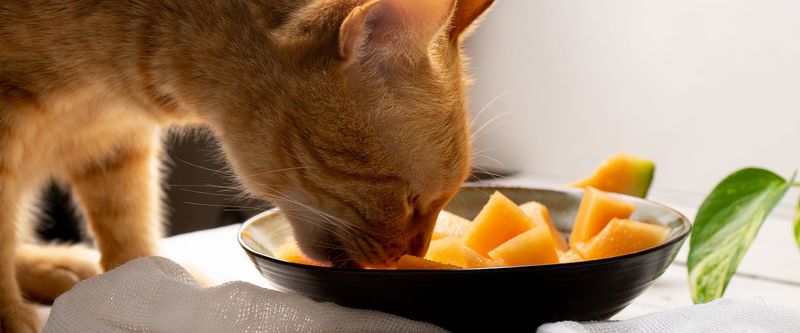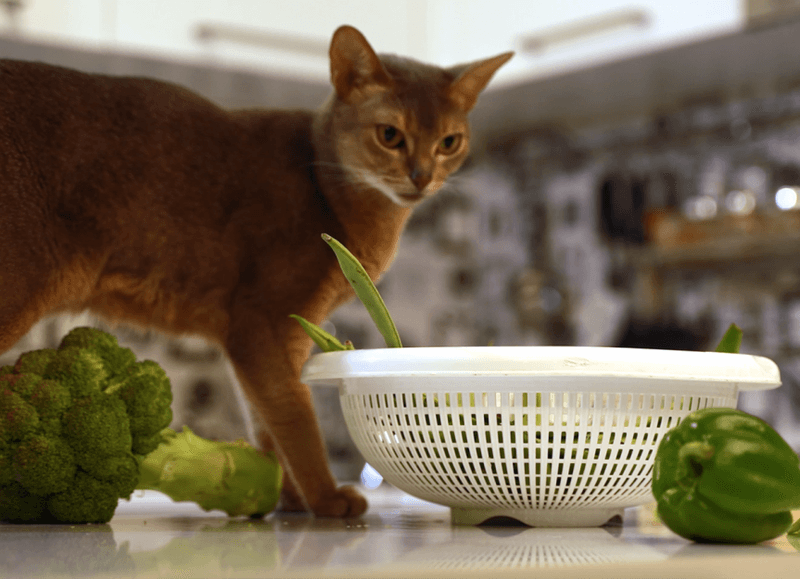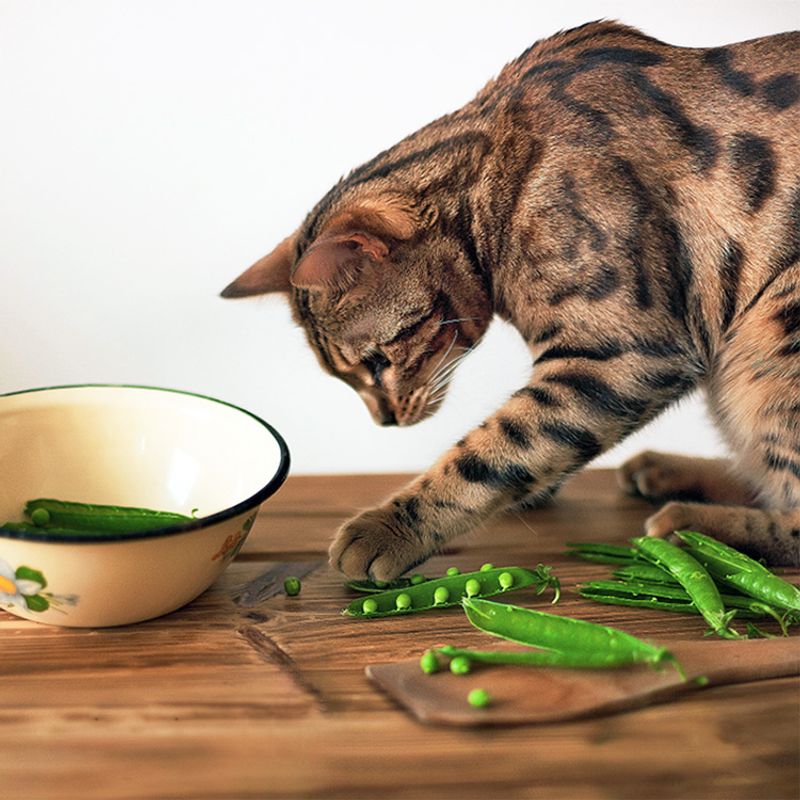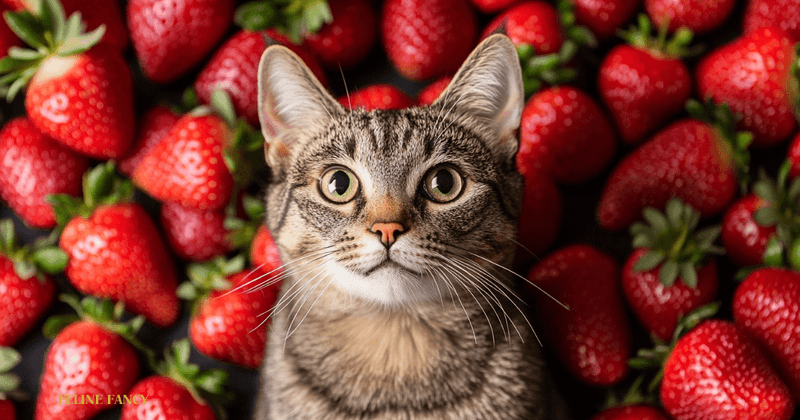📖 Table of Content:
Sharing certain human foods with your cat can offer delightful and nutritious treats. However, it’s essential to know which foods are safe and how to prepare them to ensure your feline friend remains healthy. Here, we explore 15 human foods that are generally safe for cats to consume, keeping in mind the importance of moderation and preparation. Always consult with your veterinarian before making any changes to your cat’s diet.
1. Cooked Meats
For the feline carnivore, cooked lean meats like chicken, turkey, and beef can be a delightful treat. These meats are excellent sources of protein, essential for your cat’s muscle maintenance and overall health. Just ensure they are thoroughly cooked, free from bones, and completely unseasoned to suit your cat’s palate. Whether it’s a small piece of chicken breast or a slice of turkey, these meats are a wholesome treat. Remember, raw or undercooked meats can pose health risks, so always cook them well. Cats often enjoy the simple, savory taste of plain meats.
2. Fish
Is your cat a fish aficionado? Fish such as salmon and tuna are rich in omega-3 fatty acids, enhancing your cat’s skin and coat. Serve these fish cooked and deboned to prevent any choking hazards. The savory scent of fish can be enticing for most cats, making it a popular treat. While raw fish might seem tempting, it can be harmful, so always ensure it’s cooked. Offer these treats occasionally, as too much fish can lead to nutritional imbalances. Your cat’s shiny coat might just thank you for this delicious treat.
3. Eggs
Eggs are a nutritional powerhouse for cats, offering a good source of protein and B vitamins. Cooked eggs, whether scrambled or boiled, can be served in small amounts as a treat. The rich texture and flavor are often a hit with our feline friends. Cooking the eggs is crucial to eliminate the risk of foodborne illnesses, and always serve them plain. Whether it’s a few pieces of scrambled egg or a sliver of boiled egg, these can be a satisfying and nutritious snack. Eggs provide energy and nutrition, making them a versatile treat.
4. Cheese
Cheese, in moderation, can be a delectable treat for your cat! Hard cheeses such as cheddar, Swiss, or Gouda bring a rich, savory flavor that many cats find irresistible. However, since many cats are lactose intolerant, it’s important to introduce cheese slowly and watch for any digestive issues. A tiny cube here and there can be a delightful indulgence. Cheese offers protein and fat, but it should never replace a balanced diet. This occasional treat can be a fun way to bond with your feline, adding variety to their treat options.
5. Apples
For cats curious about fruits, apples can be an intriguing option. Rich in fiber and vitamin C, apples can be offered in small, seedless slices. It’s crucial to avoid the seeds and core, as they contain cyanide, which is toxic to cats. The crisp texture and refreshing taste might appeal to your cat’s senses. While not all cats will enjoy the sweetness of apples, those who do can benefit from the added fiber in their diet. Always ensure the apple pieces are fresh and free from any added sugars or coatings.
6. Bananas
Bananas might just be the unexpected fruit your cat enjoys! High in potassium and fiber, these can be given in small, manageable pieces. The soft, sweet taste is a unique experience for most cats. Due to their high sugar content, bananas should be offered sparingly to prevent weight gain. Despite their sweetness, some cats find bananas fascinating and delightful. Ensure the pieces are small enough for your cat to manage easily. This fruit can be an occasional treat, introducing a touch of tropical flavor to your cat’s diet.
7. Blueberries
Packed with antioxidants, blueberries are a superfood that even cats can enjoy. These small berries can be a delightful treat when served fresh and without additives. Their plump texture and mild sweetness are often intriguing to cats. Blueberries can be a fun treat to toss around, engaging your cat’s playful nature. Though not a common choice, some cats might enjoy this berry’s unique flavor. Offering blueberries is a creative way to incorporate antioxidants into your cat’s diet, promoting overall health and vitality with each little bite.
8. Cantaloupe
A hydrating and tasty option, cantaloupe can be a refreshing treat for cats. This sweet melon, when served in moderation, provides hydration and a hint of flavor. Always remove the seeds and rind before offering small pieces to your cat. Many cats are curious about the sweet scent of cantaloupe and may enjoy this juicy fruit. It’s an excellent way to add a little variety to their treat repertoire. Whether it’s a hot day or just a special occasion, cantaloupe can be a fruity delight for your feline friend.
9. Carrots
Carrots might surprise you as a cat treat! Cooked carrots, being soft and slightly sweet, are appealing to some cats. They are a good source of beta-carotene and fiber, contributing to your cat’s health. Serve them in small, bite-sized pieces to prevent choking hazards. The vibrant color and tender texture can entice your cat to try something new. Whether you’re sharing a meal or giving a special treat, carrots can be a fun and nutritious addition to your cat’s diet. Always ensure they’re cooked and unseasoned for safe consumption.
10. Green Beans
Low in calories yet high in fiber, green beans can be a nutritious treat for cats. When cooked and unseasoned, they offer a crunchy texture that some cats find fascinating. These beans can aid in digestion and help with weight management, making them a smart treat choice. Whether served alone or mixed with other treats, green beans add a vegetable twist to your cat’s snack time. Their subtle flavor and satisfying crunch can be a delightful surprise for your feline. Always introduce new foods gradually and observe your cat’s preferences.
11. Peas
Peas are more than just a side dish; they can be a playful treat for your cat! High in fiber and vitamins, they can be given cooked and unseasoned. Peas are often found in commercial cat foods, but serving them as a treat can add variety to your cat’s diet. The small, round shape and soft texture are appealing to many cats. Whether you’re incorporating them into a meal or offering them solo, peas provide nutrition and fun. Discover how this simple vegetable can be a delightful addition to your cat’s treat list.
12. Pumpkin
Plain, cooked pumpkin is a wonderful treat, especially beneficial for digestive health. Whether your cat faces constipation or diarrhea, pumpkin can help regulate their system. Avoid any spiced or sweetened varieties; plain is best. The smooth texture and mild flavor are often well-received by cats. Adding a spoonful of pumpkin to their meal can enhance their diet with fiber and moisture. It’s a seasonal favorite that can be enjoyed year-round, offering a touch of autumn flavor to your cat’s palette. Make sure it’s always prepared plainly for safety.
13. Watermelon
Watermelon is not just for summer picnics; it can be a refreshing treat for cats too! This hydrating fruit, served in small, seedless pieces, can provide a burst of moisture and sweetness. Always remove the seeds and rind before offering it to your cat. Some cats enjoy the juicy texture and mild flavor, making it a fun seasonal treat. Whether it’s a hot day or just a unique offering, watermelon can be a delightful way to hydrate and satisfy your cat’s curiosity. Ensure it’s fresh and free from any added sugars.
14. Strawberries
Bursting with vitamin C and antioxidants, strawberries can be an intriguing treat for cats. When served in small amounts, fresh strawberries offer a sweet and tangy flavor that some cats might enjoy. Ensure they are fresh and free from any additives. The vibrant color and unique taste make these berries an exciting option. Whether as a rare treat or a playful snack, strawberries add a fruity twist to your cat’s diet. While not all cats will partake, those who do can enjoy the nutritional benefits of this delightful berry.
15. Oatmeal
Oatmeal isn’t just for breakfast; it can be a cozy treat for your cat too. A source of energy and B vitamins, cooked and unseasoned oatmeal can be offered to your cat in small amounts. The warm, soft texture might appeal to cats who enjoy trying new flavors. Oatmeal provides easy-to-digest carbohydrates, making it a gentle choice. Whether you’re sharing a quiet morning or simply offering a special treat, oatmeal can be a comforting addition. Always ensure it’s cooked plainly, without sugar or additives, for your cat’s safety.
